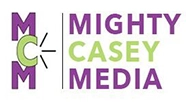It was recently revealed that an Excel error contributed to the European fiscal crisis, and a continuing global economic recession/depression. Paul Krugman called the revelation the Excel Depression in the NY Times. Certainly lives are at stake when the success or failure of large economies are at risk, but not nearly as many lives as are at stake every day given the lack of transparency (and even, in some cases, plain truth) in bioscience research and medical outcomes reporting.
Ben Goldacre gave a barn-burning TED talk, “Battling Bad Science,” in 2011. He gave another one in 2012 in which he called the data manipulation in scientific research the “cancer at the core of evidence-based medicine.” His point? We cannot make a meaningful decision in the absence of ALL the data.
Tim Berners-Lee, the man who invented the actually-useful-to-humans WWW part of the Internet, has consistently called for raw data – ALL the raw data – NOW.
Paul Levy, the former CEO of Beth Israel Deaconess Hospital, recently blogged about the failure of the Journal of Pediatric Surgery to reveal, in a report on a surgery for sunken-chest deformity, a widely-reported death of a teenage boy after said surgery, even though that boy’s case is used as an example of avoidable medical error in safety bootcamps for medical interns and residents. Boggles the mind, doesn’t it?
Even if the data is fully reported, the PR geeks who write up the announcement of results might get that report 100% wrong. Witness the recent contretemps over a University of Chicago study on patient engagement, shared decision-making, and healthcare cost control. A full outline of that mess, by ePatient Dave deBronkart in Forbes, will give you 411 on that story. The Cliff’s Notes: it was a post-discharge survey, not a full study; it measured attitudes, not outcomes; and the press release was sent out on a holiday weekend, ensuring both pick up (slow news cycle) and lack of follow up.
Given the general public’s lack of understanding of science, the scarcity of journos who can interpret same for said general public, and the scale-thumbing going on in bioscience research, what’s to be done to reverse this disease-mongering and full-on prevarication (look it up) trend?

Stetho-Snopes
How about a Snopes.com for medicine? We could call it … Stetho-Snopes. There’s certainly enough interest in the subject on the part of people and organizations. The challenge is to take all the small villages of interest across the globe and give them a repository for what they find, and what they can debunk.
Ben Goldacre is walking his own talk with an effort called AllTrials, a petition that’s demanding open data from all sources of medical research. Organizations like the Robert Wood Johnson Foundation are working on making medicine and healthcare more transparent and accessible for patients. The Society for Participatory Medicine‘s membership is committed to the same mission: transparency and collaboration across the continuum of care.
How about we all band together and make RAW DATA NOW a reality in medicine? GIMME MY DaM DATA. Now.




